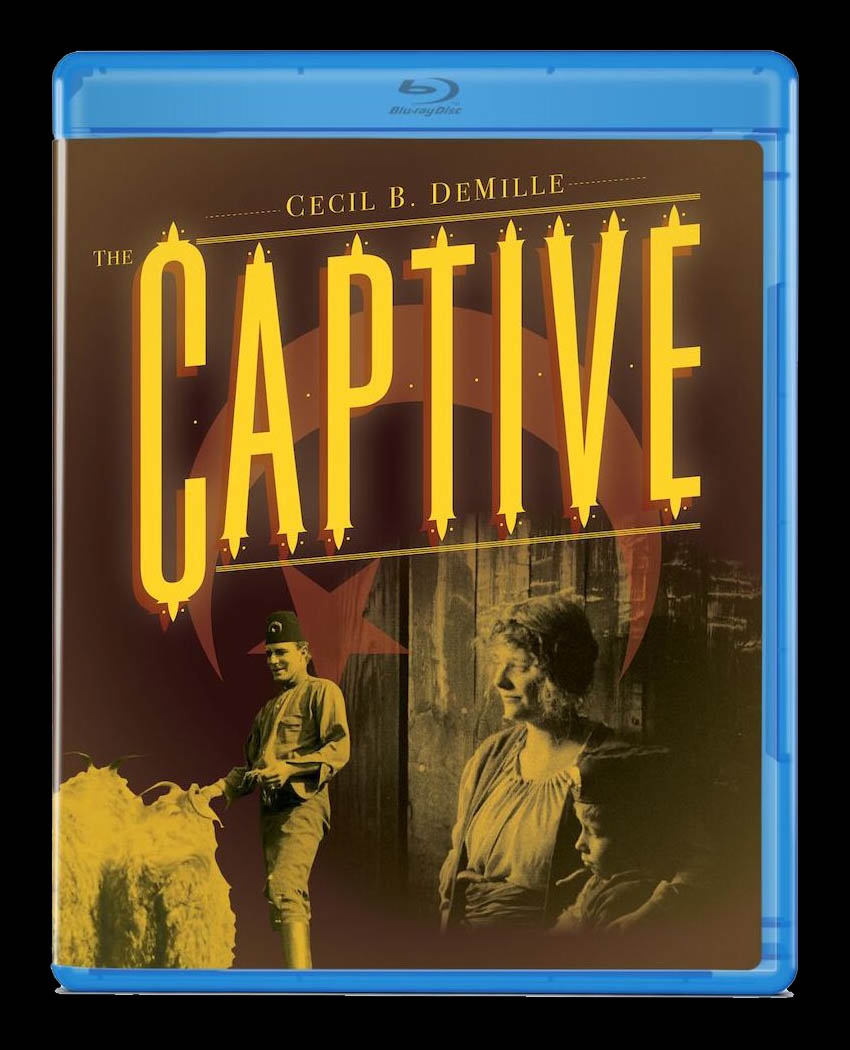Olive Films, truly a company to be revered for its interest in restoring and releasing films thought lost, has come up with yet another real winner. The Captive, directed by a 34-year-old Cecil B. DeMille, is an amazing time capsule, showing a film maker’s early steps to understanding and exploiting the new art form.

This is not a sword-and-swashbuckling lust-
Older brother Marko, younger sister Sonia and cute little brother Milos live in a Balkan country at war with the Turks. The older brother is killed. However, the conflict goes against the Turks, and prisoners are forced to aid families of the country where the older sister and little tyke live. A Turkish nobleman, Mahmud Hassan, Bey of Karvan, is charged with serving Sonia and her young brother. Yet DeMille steers the film into compelling territory: The sister and the nobleman fall in love, the Turks attack their cottage, threaten to kill and eat the tyke’s baby goat, as well as the usual rape and pillage.

How else can this end? The Turkish nobleman saves the day, clobbers a couple of Turks, and proposes to Sonia, who rejects him because he is of noble birth and she a simple peasant. Crushed, the Turk returns home, only to be stripped of all honors because of the aforesaid clobbering, so he hits the dusty road. Our heroine’s home is destroyed by more marauding Turks, and she hits the same dusty road with tyke and adorable goat, and, with the magic of cinema, they meet, embrace and live happily ever after.

The now-forgotten Blanche Sweet is a revelation in realistic film acting. The camera adores her; she is radiant in her every scene . Neither cloying nor plucky, she is completely convincing as the peasant girl who grows up and finds love. The amorous Turk is played by House Peters, and the little tyke by Gerald Ward, two names perhaps even more obscure than Sweet. The goat is suitably sympathetic.
